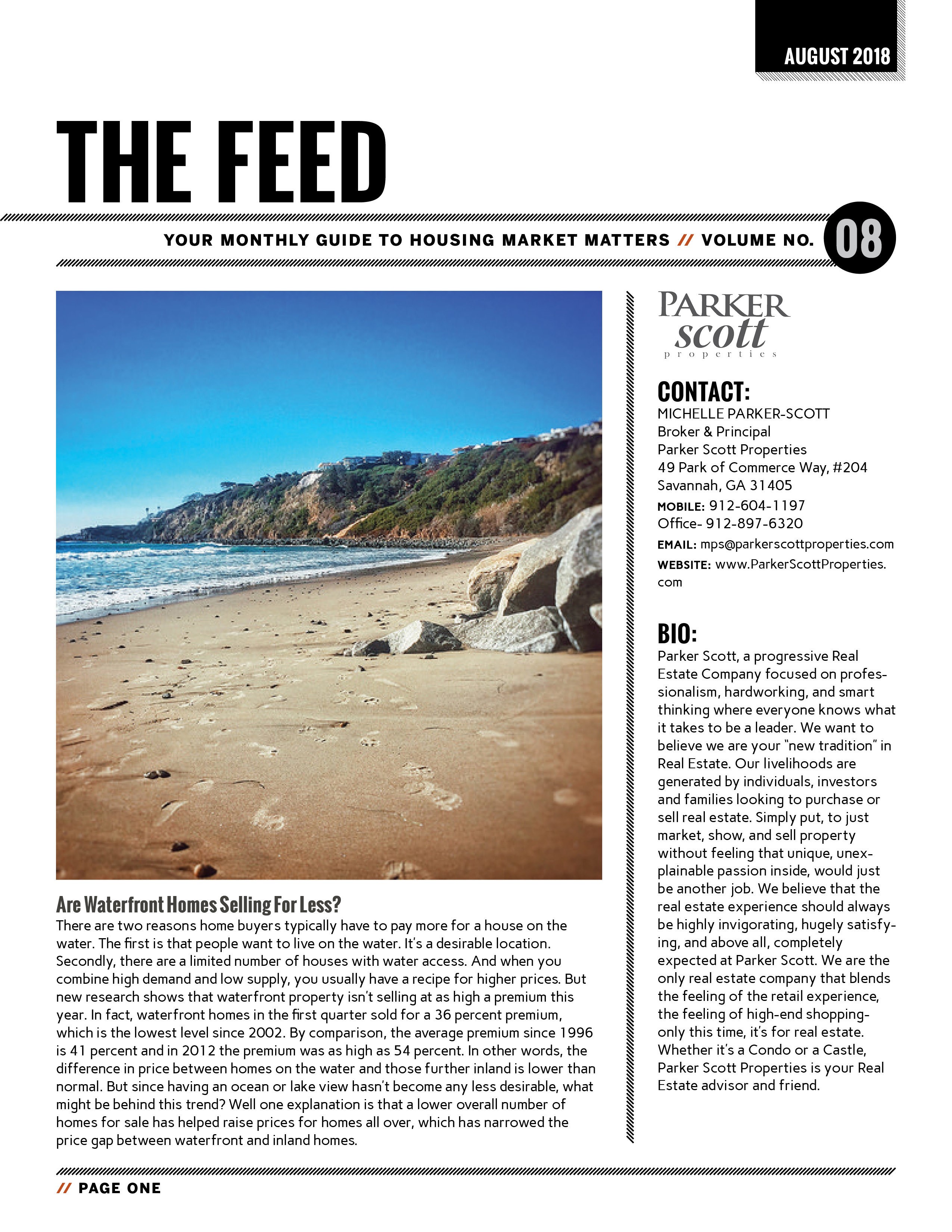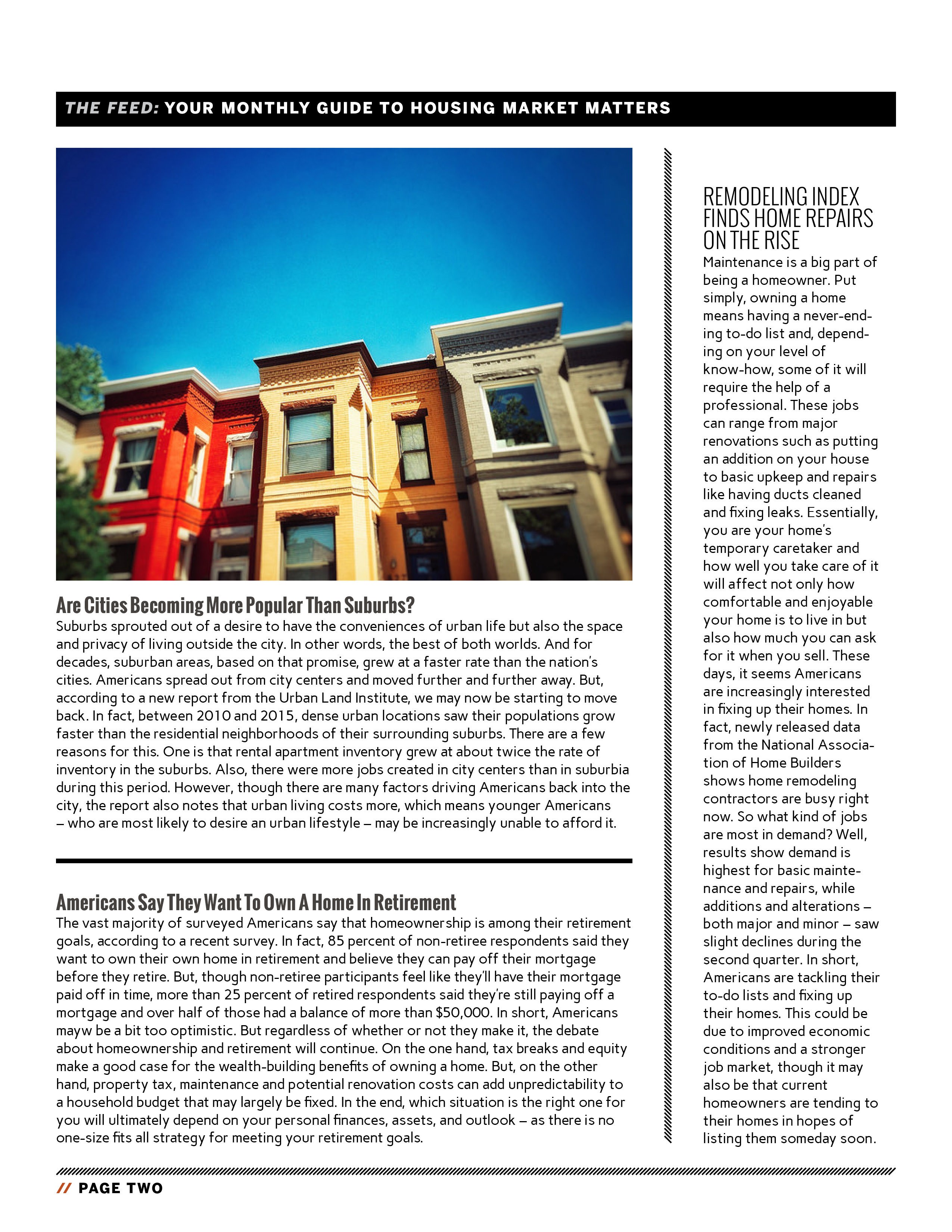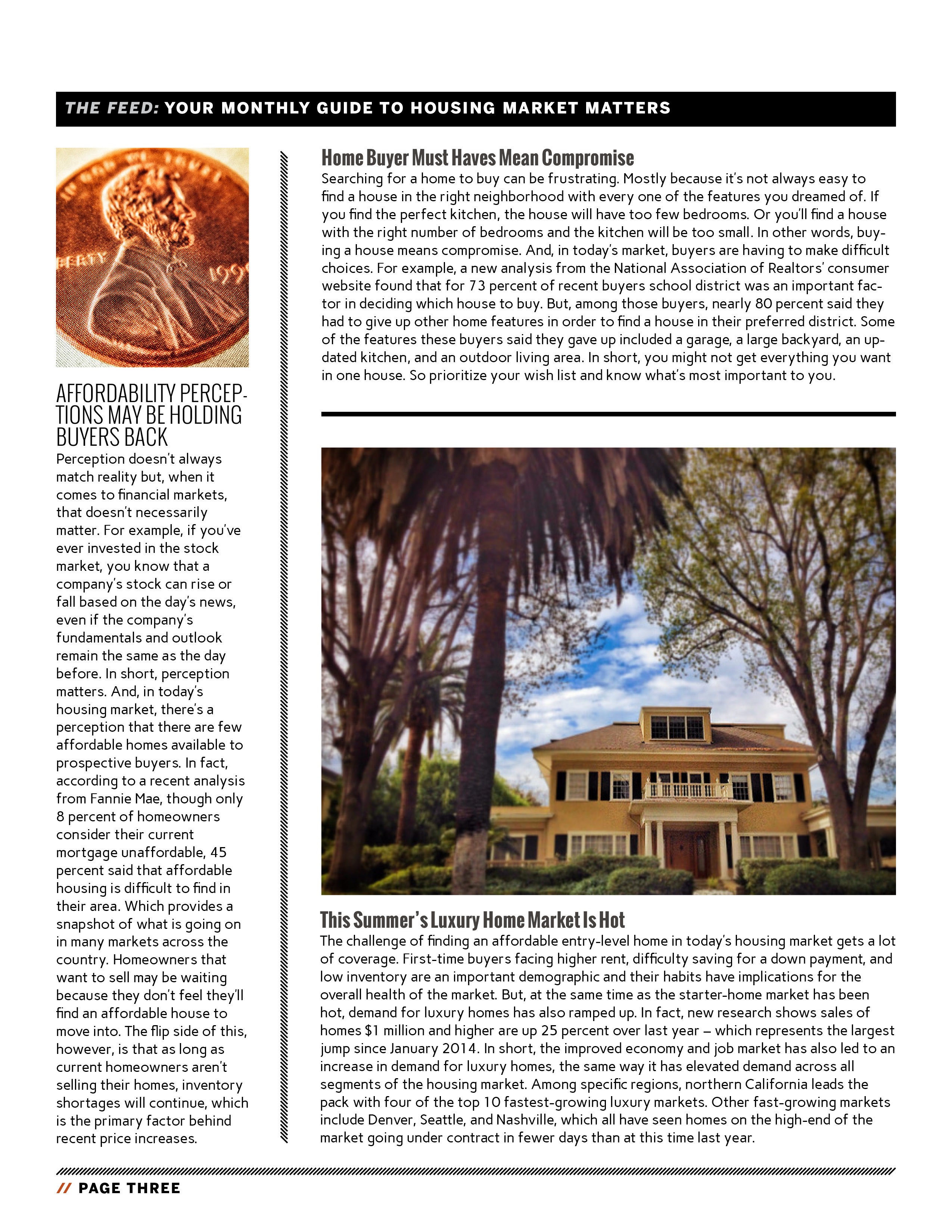Sometimes picking a house to buy can cause anxiety. After all, what if you choose the wrong one and aren’t happy living there? What if there are structural or mechanical issues that go undetected and will end up meaning costly renovations? It’s hard to imagine that you could possibly cover all the potential issues in just a few walkthroughs. And so, it’s natural to worry about buyer’s remorse. But, according to a new survey, you might be worrying yourself unnecessarily. That’s because, the results show an overwhelming majority of respondents said they love their current home. In fact, 83 percent of participants said they were happy in their house. To some degree, the responses fell along demographic lines, with people 55 years or older and retirees being the most likely groups to say they love their home and have no plans to move. Respondents between 18 and 34 were more likely to want to move. There were also regional differences. For example, residents in Boston and Detroit were more likely to say they like their current home and would rather renovate than move, while the survey found Los Angeles residents were the most likely to say they’d prefer a new house. More here.
Hurricane Michael: Savannah’s Talmadge Bridge closing to all traffic Wednesday night
Talmadge Bridge, which connects Savannah to South Carolina’s Lowcountry, will be closed to all traffic starting at 9 p.m. Wednesday, according to the Georgia Department of Transportation.
Anticipated “gale-force winds” related to Hurricane Michael will make the bridge dangerous for drivers, the agency said in a news release.
“Motorists attempting to navigate vehicles across the bridge in conditions with the high wind levels anticipated from Hurricane Michael may not be able to properly control the vehicles. The bridge is being closed for the safety of the public,” the news release said.
After the storm passes, the Talmadge Bridge will be inspected, so a reopening time was not available, officials said.
Which Cities Have The Country’s Biggest Houses?
When looking for a house to buy, you aren’t necessarily always looking for the biggest house. After all, the size of the home you choose will be determined, in part, by things like the size of your family, storage needs, how many bathrooms and bedrooms, etc. Mostly, though, it’ll be determined by your budget. Because, when it comes down to it, we all would like a little more space. For that reason, a recent study looked at the largest 45 cities in the country and calculated the median home size and cost per square foot, in an effort to figure out which cities have the biggest homes and which give buyers the most space for the best price. The results show that the South has the biggest homes, with three of the top five cities located in Texas. In fact, Houston was the city with the largest median home size at 1,952 square feet, with Atlanta, Washington DC, Dallas, and Austin rounding out the top five. Southern cities also tend to have a lower price per square foot. For example, while Houston has the biggest homes, the median price per square foot was $100. By comparison, cities like San Francisco, Boston, and Denver have smaller homes but higher prices, mostly due to the fact that the housing stock in those areas is older. More here.
Financial Security Boosts Housing Sentiment
It’s said that there are two sides to every story. But there are also two sides to the calculations potential home buyers undergo when deciding whether or not it’s a good time for them to look for a new house. After all, buyers have to take into consideration the cost of homes in the areas they’re looking to live but also their own financial security. That’s why Fannie Mae’s most recent Home Purchase Sentiment Index is encouraging. Because, though Americans have concerns about housing affordability, they are feeling confident financially and secure in their jobs. In fact, the number of survey respondents who said they aren’t concerned about losing their job rose 15 percent over the month before and those reporting that their income is higher than it was 12 months earlier hit a new survey high. Doug Duncan, Fannie Mae’s chief economist, says Americans are feeling the effects of a stronger economy. “Consumers are attuned to the divergence between the slowing housing market and strong macro economy,” Duncan said. “Consumers were less optimistic this month about both home buying and home selling conditions, while perceptions of income growth and confidence about job security are at survey highs.” More here.
Financial Security Boosts Housing Sentiment
It’s said that there are two sides to every story. But there are also two sides to the calculations potential home buyers undergo when deciding whether or not it’s a good time for them to look for a new house. After all, buyers have to take into consideration the cost of homes in the areas they’re looking to live but also their own financial security. That’s why Fannie Mae’s most recent Home Purchase Sentiment Index is encouraging. Because, though Americans have concerns about housing affordability, they are feeling confident financially and secure in their jobs. In fact, the number of survey respondents who said they aren’t concerned about losing their job rose 15 percent over the month before and those reporting that their income is higher than it was 12 months earlier hit a new survey high. Doug Duncan, Fannie Mae’s chief economist, says Americans are feeling the effects of a stronger economy. “Consumers are attuned to the divergence between the slowing housing market and strong macro economy,” Duncan said. “Consumers were less optimistic this month about both home buying and home selling conditions, while perceptions of income growth and confidence about job security are at survey highs.” More here.
Fall Forecast Sees Improvement On The Horizon
There are many different factors that play a role in the housing market’s health. When home buyers and sellers decide that its time for them to make a move everything from their job security to the global economy has an effect. For example, economic instability half way around the world can move mortgage rates, which will affect how much house you can afford. But what you can afford is also affected by how much you earn and how secure you feel in your job. In short, there’s a lot to keep an eye on. That’s why it can be helpful to tune into expert forecasts and opinions, since most of us don’t have the time or inclination to weigh all of the moving parts that determine what it’ll cost to buy the home of our dreams. So what are the experts saying about the upcoming fall market? Well, according to Freddie Mac’s most recent outlook, there may be reason for optimism. That’s because, though they say fall buyers will face many of the same challenges that held summer sales back, Freddie Mac chief economist Sam Khater says there is good news to be found. “The good news is that the economy and labor market are very healthy right now, and mortgage rates, after surging earlier this year, have stabilized in recent months,” Khater says. “These factors should continue to create solid buyer demand, and ultimately an uptick in sales, in most parts of the country in the months ahead.” More here.
Flat Home Sales A Sign Of Market Challenges
New numbers from the National Association of Realtors show sales of existing homes were virtually unchanged from the month before. Down 0.7 percent from June, sales were up in the West but a drop in the Northeast negated the gains. Lawrence Yun, NAR’s chief economist, says a lack of available homes continues to hold sales back. “Listings continue to go under contract in under a month, which highlights the feedback from Realtors that buyers are swiftly snatching up moderately-priced properties,” Yun said. “Existing supply is still not at a healthy level, and new home construction is not keeping up to meet demand.” In short, there are more buyers than there are homes for sale in many markets and it’s making it challenging for buyers this summer. Fifty-five percent of the homes sold in July were on the market for less than a month and, though inventory had been seeing modest gains, it stalled in July. That means, market conditions aren’t likely to change much in the months to come, so buyers should prepare for competition this fall and make sure to be pre-approved by a lender before heading out to look at homes. More here.
Buyers Come Out Despite Market Challenges
For the second straight month, sales of previously owned homes increased from one month earlier, according to new numbers from the National Association of Realtors. In fact, sales of single-family homes, townhomes, condos, and co-ops, rose 1.1 percent to an annual rate of 5.60 million in March. Lawrence Yun, NAR’s chief economist, says warmer weather may have had something to do with the sales pickup. “Robust gains last month in the Northeast and Midwest – a reversal from the weather-impacted declines seen in February – helped overall sales activity rise to its strongest pace since last November at 5.72 million,” Yun said. Put simply, low inventory and higher prices have made the housing market more challenging for buyers in some markets but overall demand is running high and, as the weather improves, may even see further gains. For interested buyers, that means available homes are selling fast this spring. The NAR reports that the typical property was on the market for just 30 days in March and half of the homes that sold were purchased in less than a month. More here.
August Newsletter




